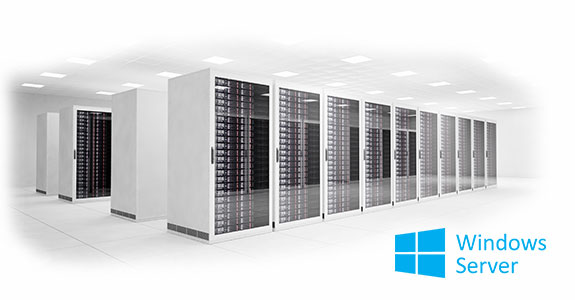With full Administrator access you can configure your very own Windows Server to host the applications of your choice. If your organisation has outgrown shared-hosting solutions, this is for you. Unmatched performace at an affordable price. Build and manage your new Windows Server in less than 30 minutes from time of ordering.

Many people use shared hosting for their first website. While it may be adequate at first, as your company expands, you will require more independence, space, and privacy. After using virtual private server hosting for a while, you may decide to upgrade to a dedicated server. Windows dedicated servers provide a full server to a single client. The user does not have to share any of the server's resources with anyone else.
Linux and Windows are the two most common operating systems to choose from. While Linux dedicated servers are inexpensive, they are not compatible with every software. Even though they can be pricey, Windows dedicated servers are essential for organisations, developers, and anyone that wish to run widely used Windows-based software on their servers.
Instead of being managed by an outside company, a self-managed Windows server is overseen directly by the company or person responsible for the server's upkeep. This means that the company or individual is in charge of server management, which includes things like applying patches, tweaking security settings, and fixing any problems that arise.
Web hosting, file sharing, email, and the running of mission-critical programmes are just some of the many possible uses for privately managed Windows servers, whether they are located on-premises or in a data centre. Self-management of servers is an option for businesses looking for greater say over their server infrastructure and lower operational costs. Self-management has its benefits, but it takes a considerable time and money investment to keep the servers updated and safe.
On the other hand, a managed Windows server has its operation and maintenance handled by an outside company. Computer maintenance might include installing new versions of software, making backups, ensuring data security, and fixing any problems that may arise. For businesses without the personnel or equipment to handle server management in-house, this may be a more economical option.
As a whole, it's up to the individual demands and available resources of each company to decide between self-managed and managed Windows servers. Compared to managed servers, which are less expensive but offer less control, self-managed servers offer greater control and flexibility but necessitate more time and resources.
The advantages of a Windows dedicated server that you control on your own include:
These are the broad strokes for constructing and administering a new Windows Server:
The organisation in charge of maintaining a web server is what distinguishes a managed server from an unmanaged one. Unlike the managed servers, which have their upkeep handled entirely by the hosting company, the unmanaged servers are the responsibility of the business that uses them.
Virtual private servers, or VPSs, are versions of virtual machines that offer shared server resources in a virtualised way. Virtual private servers provide greater flexibility and independence than shared hosting by allocating a dedicated portion of a server's resources to each user.
Companies rely on Windows Server as their central network device because it stores their programmes and data, enables the secure sharing of data, and provides essential network services like User Authentication, DNS, DHCP, and File shares.
The term "Virtual Private Server" (VPS) refers to a sort of virtual computer that is often used for web hosting or other server applications and is provided by a hosting company. Users are responsible for controlling all aspects of their virtual server, including the OS, software, and data, while the hosting provider handles the underlying physical server and virtualization software.
Windows Server that the user owns and operates themselves is referred to as a self-managed Windows Server. Every aspect of the server, from hardware to operating system to applications to data, must be managed by the user. As opposed to a virtual private server (VPS), this usually necessitates a greater amount of technical know-how and hardware.
In South Africa, virtual private servers (VPS) and self-managed Windows servers can range in price from one supplier to the next and from one set of features to the next. As the customer must take responsibility for the server's upkeep and updates, self-managed Windows servers often have a higher initial cost than VPS. In addition to providing VPS hosting at cheaper initial rates, several companies also offer managed services for an additional fee. However, if a Windows server is self-managed, the user can save money in the long run by eliminating the cost of managed services and making better use of available resources.
